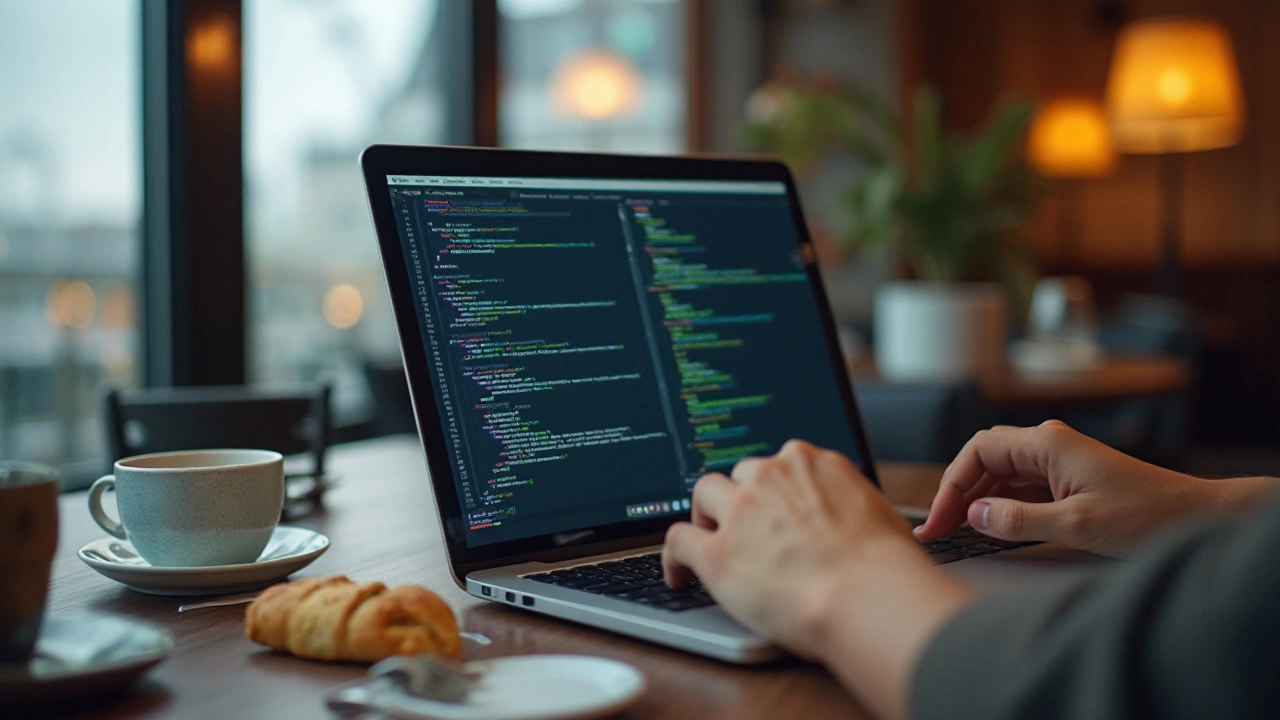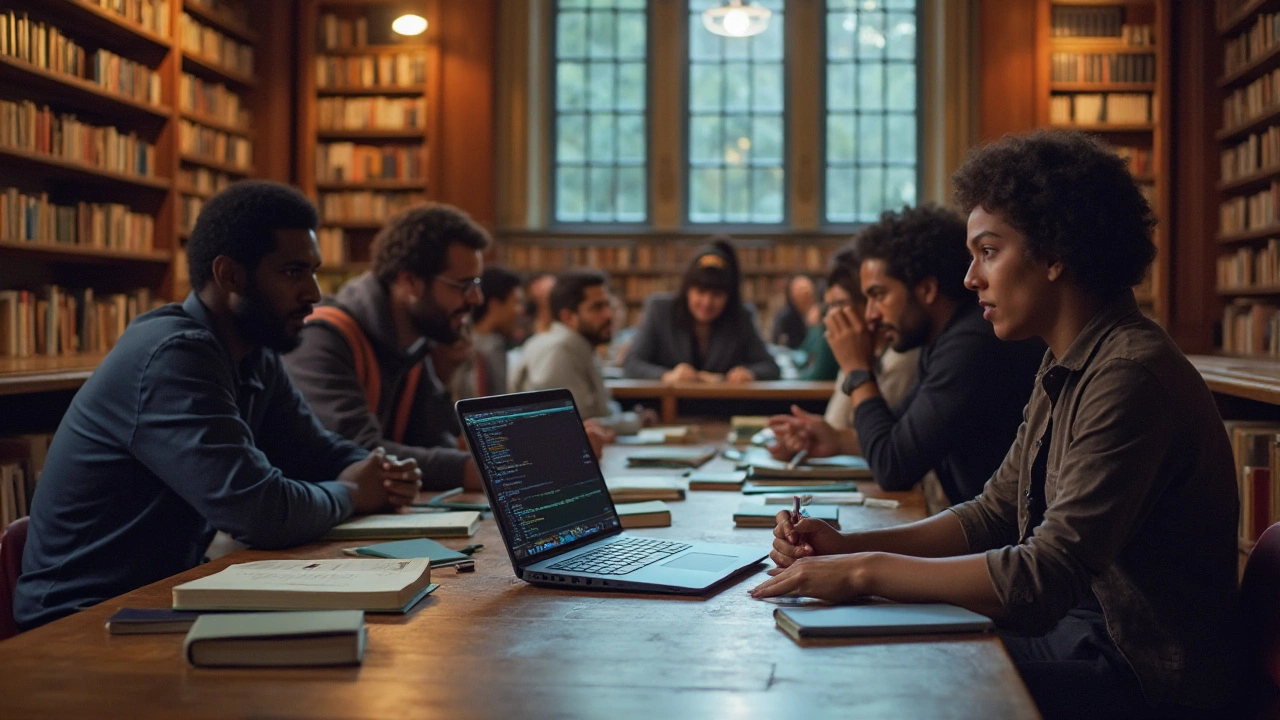For decades, programming has been at the cutting edge of technological progress, with freelance web developers playing a significant role in this evolution. But in recent years, the rapid advancement of artificial intelligence has sparked debate about its potential to someday replace programmers altogether.
AI today can assist in coding, suggesting snippets, and debugging in ways previously unimaginable. Yet, it still lacks many nuances that human developers possess. While questions remain about its future capabilities, AI could become a valuable ally rather than a replacement.
In this exploration, we’ll examine AI’s current capabilities in the programming realm, its limitations, and strategies web developers can utilize to stay relevant in this AI-influenced landscape. Do programmers face obsolescence, or is there an opportunity for collaboration?
- Current Role of AI in Programming
- Limitations of AI in Coding
- The Human Touch in Development
- Preparing for the Future
Current Role of AI in Programming
When we talk about the AI revolution in the world of programming, it’s hard not to picture a future where machines code effortlessly and efficiently. Right now, AI is gradually transforming the workflow of developers, bringing a mix of excitement and apprehension. These days, AI tools are more common than ever in programming environments, providing coders with numerous advantages. AI-powered platforms, like GitHub Copilot and TabNine, serve as powerful starting points, offering real-time assistance while you type. They analyze vast chunks of existing code and provide quick suggestions that often save developers numerous hours otherwise spent on repetitive tasks. This has been an absolute game-changer for any freelance web developer or large-scale team prioritizing efficiency.
One of AI’s remarkable abilities is recognizing and fixing bugs before they escalate into major issues, even at the early stages of development. Everyone who has spent time coding knows the cumbersome process of debugging, and AI has made it less of a hassle. Leveraging machine learning, AI algorithms learn from an immense dataset comprising past coding errors, which allows predictive analysis, identifying bugs with impressive accuracy. Even major tech companies are embracing these AI advancements; they implement predictive analytics to improve code quality and reliability, drastically minimizing errors in production software. However, while AI can optimize the time-consuming process of sifting through code, what it can’t do — at least, not yet — is grasp the bigger picture of creative development.
"AI tools are reshaping traditional methods, allowing developers to focus on the more abstract and creative elements." - Expert from MIT Technology Review
AI doesn’t grasp the same creativity and intuition that human developers do when conceptualizing a new project. Rather than seeing it as a competitor, many programmers view AI as a collaborator that can handle straightforward tasks. This allows developers to channel their focus onto solving complex problems and groundbreaking innovations. Moreover, AI-powered platforms are gradually expanding their capabilities, offering diversified resources for developers who need specialized tools. For example, there are platforms designed to enhance project management efficiency by automating tasks like version control and documentation. The harmony of AI in assistance roles suggests an evolving landscape where humans and machines could work more effectively as partners rather than labor competitors. The key for individual developers is in learning to leverage these emerging tools so they can fully embrace a dual-powered approach.

Limitations of AI in Coding
While artificial intelligence shines in automating repetitive processes and suggesting efficient code snippets, there are still significant gaps in its programming capabilities. At present, AI lacks the innate human creativity required for problem-solving in complex or abstract ways. While AI can parse through lines of code to spot errors or suggest fixes, it often struggles with understanding larger project contexts that human developers naturally perceive. This limitation often becomes apparent in dynamically-written languages where subtlety and flexibility are key components – areas where human intuition reigns supreme.
AI's lack of emotional intelligence also comes into play, limiting its ability to assess client needs accurately, a cornerstone of successful freelancing. A reputable source once said, "AI can automate tasks, not understand the essence of client demands." Unlike AI, developers have the ability to foresee potential issues by imagining various use-case scenarios and empathetically aligning with the intended user experience. Additionally, AI can be prone to biases based on the data it's been trained on; this inherently narrows its understanding and can lead to unforeseen mistakes in the code and ethical issues in application.
Security vulnerabilities are also a pertinent concern. While AI tools can learn to identify known vulnerabilities quickly, they may not possess the same proactive foresight a human developer employs when writing secure code from scratch. It takes a seasoned developer to understand the intricacies of evolving digital threats and to innovate solutions that safeguard against yet unidentified exploits. Equally important are the fundamental design decisions humans make; considerations that require context and the ability to negotiate between trade-offs which AI is not yet capable of handling.
Finally, the learning curve involved in coding is more than just memorizing syntax or patterns, it's about evolving as technology changes. Experienced programmers continually adapt and learn new paradigms, engaging socially to share knowledge, something AI can't replicate. There's an essential community aspect to development work that hinges on collaboration, mentorship, and collective problem-solving, fostering innovation in ways AI is yet to achieve.

The Human Touch in Development
Developing web content is more than just typing lines of code; it is a complex process that involves understanding nuanced human behaviors, creativity, and intuition. While AI can handle repetitive tasks, compile data, or even suggest solutions, it often misses the empathy and emotional intelligence required to create truly engaging and user-friendly applications. As interactive web experiences continue to grow, understanding the subtle user experience elements that make apps enjoyable to use remains a crucial human skill. The ability to predict users' needs and adapt functionalities based on their intuitive experiences is something current AI models struggle with.
One of the fascinating aspects of human-driven development is our inherent ability to brainstorm innovative features by stepping into the shoes of diverse end-users. A web developer can creatively solve problems by leveraging real-world experiences and cultural contexts—something a machine learning algorithm cannot easily replicate. There's a reason human designers steer many AI-driven projects, as they are capable of adapting designs to suit shifting trends and evolving user expectations. This adaptability and foresight into future possibilities remain an irreplaceable human component in software development.
Another critical human factor is the ability to communicate and collaborate. In most successful development projects, there is a synergy among individuals with different domains of expertise. This interaction often leads to eureka moments that machines can't produce alone. According to Steve Jobs, "It's technology married with liberal arts, married with the humanities, that yields us the results that make our hearts sing." This quote highlights the significance of human interaction and diversity of thought that programming necessitates, which becomes the cornerstone of innovation.
There's also a layer of artistry attached to programming approaches which can differ greatly from developer to developer—a signature style not unlike a painter’s brushstroke. Developers often infuse personal touches into their code that create a unique footprint, offering distinct solutions and fostering brand differentiation. AI might be capable of handling vast amounts of data, but developing a website or an application that resonates personality falls within the human domain. Thus, as freelance developers look ahead, they can capitalize on these aspects to build an exceptional portfolio that capitalizes on originality.
Moreover, in the business of freelancing, building relationships and communicating effectively with clients is paramount. Humans can sense nuances in tone, untangle complex requirements, and manage expectations in ways that no AI currently can. This strengthens client trust and builds partnerships that often result in long-term connections and recurring projects. These skills ensure a healthy career landscape, emphasizing the indispensable nature of the human touch in every facet of web development.

Preparing for the Future
As the potential for AI in the technology sector grows, freelance web developers must consider how to position themselves effectively for the future. This involves adapting to changes while honing skills that machines may not replicate easily. A critical step is understanding the distinct capabilities of AI and how it can complement human abilities rather than replace them. Training in machine learning principles and collaborating with AI tools can offer developers a competitive edge. By embracing AI as an enhancer of efficiency, developers can focus on innovation, which remains a uniquely human trait.
One strategy is to focus on the aspects of programming that require creative problem-solving, empathy, and user-oriented design. For example, while AI can generate code, it still struggles with understanding the user's needs like a human developer would. This gap highlights the importance of soft skills and domain expertise, which should be nurtured to deliver personalized, impactful digital solutions. Engaging users through intuitive designs and adaptive interfaces is an area where human insight is currently unparalleled by machines.
Investing in continuous learning is another vital strategy. Just as technology doesn't stand still, neither should the Web Developer. Engaging in workshops, online courses, and tech conferences can keep developers abreast of the latest trends and technological advancements. Pursuing certifications in emerging fields like cybersecurity or data analysis can also widen one’s professional portfolio. As the job market evolves, versatility and a willingness to learn will be the hallmarks of successful developers.
"The best way to predict the future is to invent it," said Alan Kay, a respected computer scientist. This quote serves as a reminder that innovation lies within our actions, not just in waiting for technology to shape the world. Developers should actively embrace this mindset to cultivate opportunities in an AI-infused future.
Developing resilience is equally crucial. The transition towards greater automation could lead to periods of uncertainty for developers. Cultivating a mindset that accepts change and transformation can provide stability amidst technological evolution. Networking with other industry professionals can also offer support and provide new opportunities through collaboration and shared resources during times of change.





